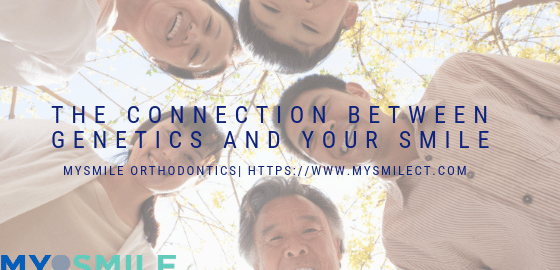
The Connection Between Genetics and Your Smile
Genetics and your smile, is there a connection? When you think about your smile, are there any similarities between you and the other members of your family? Believe it or not, genetics and your smile do have a connection. How it looks, oral hygiene, common dental issues can all be linked to your family genes. Since there is a link between genetics and your smile, the need for orthodontic treatment may go back to your parents or grandparents.
No matter how well you take care of your smile, your genes may be the reason you experience oral health issues or need orthodontic treatment. Let’s take a closer look at how genetics and your smile are related!
What Similarities Are Found Between Genetics and Your Smile?
From gum disease to crooked teeth, there are several ways your smile can be affected by your family. While the most common links have to do with oral health, genetics also plays a huge part in the need for orthodontic treatment. Here are the most common ways genetics and your smile are linked.
Gum Disease
No one wants to deal with the damage and embarrassment caused by periodontal disease. While most advanced gum disease issues are linked to poor oral hygiene, your genetics may leave you at risk for these problems. Additionally, a family history of diabetes can leave you at even higher risk when it comes to periodontal disease. So, even if you regularly schedule dental cleanings and checkups and brush and floss your teeth as suggested, there may be no avoiding this unfortunate oral health issue.
Total bummer, right? Not necessarily! If the link to gum disease is genetics and your smile, there are ways you can lessen your risk. Know your family’s history. This is a huge asset to your dentist when it comes to preventative care. The earlier you treat these problems, and diagnose any issues, the easier it is to keep gum disease from spreading like wildfire. From there, you can talk to your dentist about ways to reduce your risk and improve your oral health.
Tooth Decay
If you seem to struggle with cavities and tooth decay no matter how much you improve your oral health routine, you are probably dealing with a genetic link. Beta-defensin 1, also known as DEFB1, has a connection to genetics and your smile. This gene has been linked to an increase in the risk of cavities among dental patients.
Before you sound the alarm, don’t panic. Just like with gum disease, there is light at the end of the tunnel when it comes to the link between genetics and tooth decay. Sealants and other treatments have recently evolved as a more aggressive form of prevention for patients susceptible to cavities. Regular dental checkups and proper oral health care will only reduce your risk further if tooth decay is a genetic problem you face.
The Link Between Genetics and the Need for Orthodontics
If it looks like you need orthodontic care, there’s a strong chance that genetics is the cause. Do crooked teeth run in your family? Did your parents or grandparents have an issue with spaces in between their teeth or an over or underbite? One of the biggest causes of crowded teeth is the makeup of your jaw. People with smaller mouths can experience teeth crowding. People with larger mouths can experience gaps in the teeth. Gaps can cause a shift that leads to crooked teeth and the need for orthodontic care. The bottom line though is that most of these common orthodontic issues are linked to genetics and your smile.
If your family has a history of orthodontic treatment, it’s probably something you need to watch for as well. Orthodontic issues should be dealt with if you want to avoid serious dental issues. When you ignore the need for orthodontic treatment, you can leave yourself at risk for things like tooth loss and gum disease. While genetics and your smile may be the cause of all these issues, there are several solutions to help you deal with these common problems.
You can’t blame your parents for everything! But, when it comes to genetics and your smile, mom and dad may have to take the heat. If you’re dealing with crooked teeth, talk to your orthodontist about how to reduce your risk and deal with genetic-based issues with your smile.
